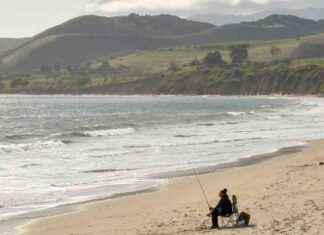Chris Packham, the well-known host of Springwatch, has recently criticized Tottenham Hotspur’s plans to develop part of Whitewebbs Park in Enfield, north London into a women’s football academy. Packham has described the plans as “absolutely bonkers” and “disconnected from reality”. He believes that the Premier League’s economic power is driving this decision, and that it is a case of David versus Goliath.
Whitewebbs Park is home to a diverse range of wildlife, including 80 species of birds, bats, great-crested newts, badgers, and butterflies. A local resident, Sean Wilkinson, took Spurs to court over the development plans, but a judge ruled in favor of the football club. Wilkinson is now trying to raise £20,000 to appeal the court’s decision, and Packham has voiced his support for this cause.
Packham argues that in the face of a climate emergency, preserving green spaces like Whitewebbs Park is essential for both nature conservation and people’s mental health. He questions the need for more football pitches in an already limited space and emphasizes the importance of prioritizing nature over development projects.
Spurs have defended their plans, stating that the Women’s and Girls’ Training facility will only occupy a small portion of the Whitewebbs site. They have pledged to restore the former golf course to historic parkland, repair a pond, and enhance the overall biodiversity of the area by planting trees and creating new habitats for wildlife.
Despite Spurs’ efforts to mitigate the environmental impact of their development, Packham remains firm in his stance that green spaces in urban areas should be protected at all costs. He highlights the role of green spaces in regulating city temperatures and providing much-needed respite for urban dwellers.
In conclusion, the clash between Tottenham Hotspur and conservationists like Chris Packham underscores the ongoing debate between development and environmental preservation. As the world grapples with pressing issues like climate change, finding a balance between economic interests and ecological sustainability becomes increasingly crucial. It is clear that the fate of Whitewebbs Park is not just a local issue, but a reflection of broader tensions surrounding land use and conservation in our rapidly changing world.







